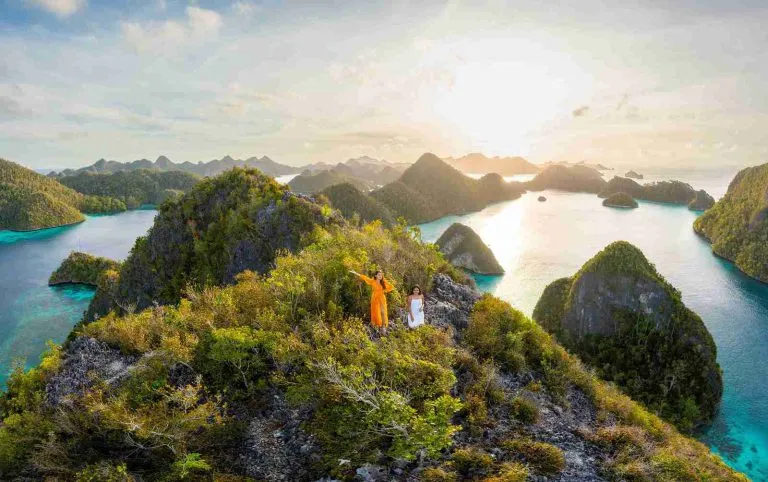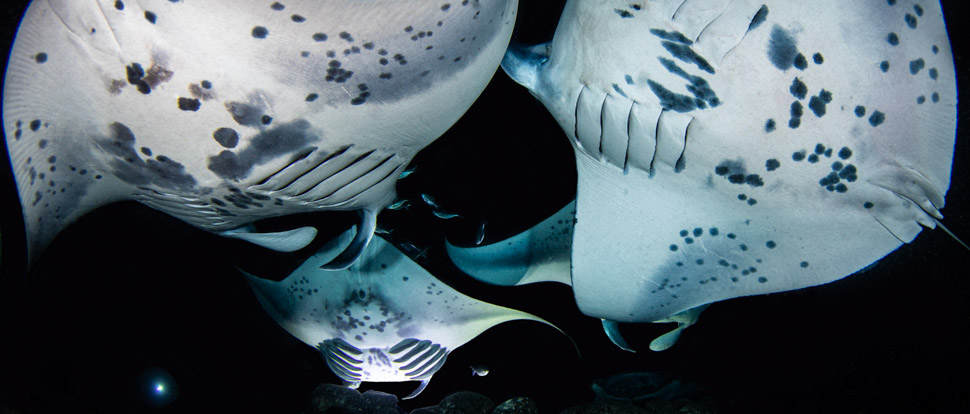Dive In, Give Back: Transformative Sea Adventures for a Brighter Ocean

Are you a millennial with a serious case of wanderlust and a passion for protecting our blue planet? Do you dream of combining your love for travel with hands-on marine conservation? Then get ready to swap those generic beach vacations for transformative sea adventures that make a real difference. We're diving deep into four incredible experiences that offer the perfect blend of exploration and environmental responsibility. Get ready to be inspired, empowered, and ready to book your next trip – one that helps heal our oceans!
A group of baby turtles make their way towards the ocean during a release program, embodying the success of conservation efforts.
1. Costa Rica's Turtle Guardians: A Night on the Beach with Sea Turtle Rescuers
Imagine yourself walking along a dark, sandy beach under a blanket of stars. The air is thick with humidity, and the only sounds are the crashing waves and the rustling of leaves in the nearby rainforest. You're not just there for a leisurely stroll; you're on a mission. You're volunteering with the Sea Turtle Conservancy in Tortuguero, Costa Rica, and tonight, you're a guardian of the sea.
Tortuguero, meaning "Land of Turtles," is a critical nesting site for several endangered sea turtle species, including the green sea turtle, leatherback, and hawksbill. Poaching and habitat destruction have decimated turtle populations worldwide, making conservation efforts in places like Tortuguero absolutely vital.
My own experience volunteering here was truly unforgettable. After an orientation session with the Sea Turtle Conservancy team, we were divided into small groups and assigned sections of the beach to patrol. Armed with red-filtered flashlights (regular lights can disorient the turtles), we walked slowly, scanning the sand for signs of nesting females.
The first night was quiet, but the anticipation was palpable. Then, on the second night, we spotted her. A massive green sea turtle, slowly and laboriously making her way up the beach. She was a magnificent sight, her ancient eyes focused on the task ahead. We kept our distance, allowing her to choose her nesting site undisturbed.
Once she began laying her eggs, the real work began. Researchers carefully measured her carapace, recorded her tag number (if she had one), and counted the eggs as they dropped into the nest. It's a delicate balance – collecting valuable data without causing stress to the turtle.
After she finished laying and carefully covered her nest, we helped relocate the eggs to a safer location in the hatchery, protected from predators and high tides. This is a crucial step, as many nests are lost to natural causes. Releasing the baby turtles back into the ocean is amazing, and the process is handled very carefully to ensure the turtles are given the greatest chance of survival.
Ethical Considerations: The Sea Turtle Conservancy emphasizes minimal disturbance to the turtles. Red-filtered lights are essential, and volunteers are trained to approach nesting females cautiously and quietly. Touching the turtles is strictly prohibited unless specifically instructed by researchers.
Tangible Outcomes: By volunteering with the Sea Turtle Conservancy, you directly contribute to increased turtle nesting success rates. Your efforts help protect nests from poachers and predators, allowing more baby turtles to hatch and make their way to the ocean. You're also supporting long-term research efforts that inform conservation strategies. Volunteer here: Sea Turtle Conservancy
Call to Action: Donate to the Sea Turtle Conservancy or participate in their volunteer program. Every contribution, big or small, helps protect these incredible creatures for future generations.
2. Raja Ampat's Reef Revival: Exploring Paradise with Community-Based Ecotourism
Imagine diving into an underwater wonderland where vibrant coral reefs teem with life. Schools of colorful fish dart through the water, manta rays gracefully glide overhead, and the biodiversity is simply breathtaking. This is Raja Ampat, Indonesia, a remote archipelago renowned as the "Amazon of the Seas." But beneath the surface, challenges exist. Overfishing and destructive fishing practices have taken their toll on Raja Ampat's reefs. Fortunately, a wave of community-based ecotourism initiatives is helping to protect these precious marine resources.
Papua Paradise Eco Resort is a shining example of sustainable tourism in action. Owned and operated by the local Papuan community, the resort prioritizes environmental protection and community development. From employing local staff to sourcing food locally and supporting marine conservation projects, Papua Paradise is committed to making a positive impact.
During my stay, I had the opportunity to explore Raja Ampat's incredible dive sites with experienced local guides. They shared their knowledge of the reefs, pointing out hidden creatures and explaining the importance of marine conservation. One of the most memorable experiences was visiting a coral restoration project led by community members. We helped plant new coral fragments onto artificial reefs, contributing to the rehabilitation of damaged areas.
 A vibrant coral reef in Raja Ampat showcases the biodiversity of the region and the importance of its conservation.
A vibrant coral reef in Raja Ampat showcases the biodiversity of the region and the importance of its conservation.
Ethical Considerations: Supporting locally owned businesses like Papua Paradise is crucial for ensuring that tourism benefits the local community. Respecting traditional ecological knowledge and participating in responsible tourism practices are also essential.
Tangible Outcomes: Ecotourism revenues contribute to community development, funding schools, healthcare, and infrastructure projects. They also support the management of marine protected areas and promote sustainable fishing practices, ensuring the long-term health of Raja Ampat's reefs.
Call to Action: Book your trip to Raja Ampat with locally owned operators like Papua Paradise Eco Resort. Respect the local culture, follow responsible diving practices, and support conservation initiatives.
3. Kona's Manta Ray Magic: Freediving with Gentle Giants Responsibly
Imagine yourself floating weightlessly in the dark, illuminated by spotlights that attract plankton – the manta rays' favorite food. As you descend into the water, graceful manta rays appear, their enormous wings spanning up to 12 feet. This is the magical world of manta ray night dives in Kona, Hawaii.
Manta Ray Advocates is an organization dedicated to protecting manta rays through research, education, and responsible tourism. They work with local tour operators to ensure that manta ray encounters are conducted in a way that minimizes disturbance to the animals.
My freediving experience with Manta Ray Advocates was truly awe-inspiring. Our guides emphasized the importance of maintaining a safe distance from the manta rays, avoiding touching them, and minimizing our movements in the water. We simply observed these gentle giants as they gracefully fed on plankton, twirling and somersaulting in the light.
Ethical Considerations: Maintaining a safe distance is crucial to avoid stressing the manta rays. Touching them can damage their protective mucus coating and make them vulnerable to infection. It's also important to avoid using flash photography, as it can disorient the animals.
Tangible Outcomes: Responsible tourism supports manta ray research and conservation efforts in the Kona area. Manta Ray Advocates uses data collected from these encounters to monitor manta ray populations, track their movements, and identify threats to their survival.
Call to Action: Choose responsible tour operators that prioritize manta ray welfare. Educate yourself about manta ray behavior and follow guidelines to minimize disturbance.
4. Mediterranean Cleanup Crew: Diving for a Plastic-Free Future in Greece
Imagine diving into the crystal-clear waters of the Aegean Sea, only to find yourself surrounded by plastic waste. Bottles, bags, fishing nets – the seafloor is littered with the remnants of our throwaway culture. This is the harsh reality of marine pollution in the Mediterranean.
Aegean Rebreath is an organization dedicated to cleaning up the Greek seas and raising awareness about plastic pollution. They organize volunteer diving expeditions to remove plastic waste from the seafloor, beaches, and coastal areas.
My experience volunteering with Aegean Rebreath was both challenging and rewarding. Diving to remove plastic waste from the seafloor is not easy. It requires specialized skills, equipment, and a strong commitment to environmental protection. But the impact of our efforts was immediately visible. We removed hundreds of kilograms of plastic waste from the marine environment, creating a cleaner, healthier habitat for marine life.
Ethical Considerations: Proper waste disposal is essential to prevent further pollution. Supporting initiatives that reduce plastic consumption and promote recycling is also crucial.
Tangible Outcomes: Volunteer efforts help remove harmful plastic waste from the marine environment, preventing it from entangling marine animals, polluting the food chain, and damaging sensitive ecosystems. The project also promotes environmental awareness and community engagement, inspiring people to take action to protect our oceans.
Call to Action: Participate in cleanup dives with Aegean Rebreath, reduce your plastic consumption, and support organizations working to combat marine pollution. Every small action can make a big difference.
Conclusion:
Our oceans are facing unprecedented threats, but there is hope. By choosing transformative sea adventures that prioritize marine conservation and sustainable tourism, we can make a real difference. From protecting sea turtles in Costa Rica to restoring coral reefs in Raja Ampat, freediving with manta rays in Kona, and cleaning up plastic pollution in the Mediterranean, there are countless ways to dive in and give back. So, pack your bags, grab your gear, and get ready to embark on a journey that will change your life – and help heal our oceans.